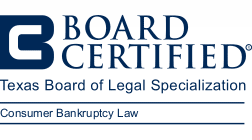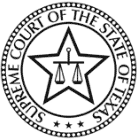Does Texas Have the Best Bankruptcy Homestead Exemptions?
 If you are considering filing for bankruptcy, your biggest worry may be whether or not you will be allowed to keep your home. Bankruptcy laws vary significantly from state to state, and, in some states, you have the option of choosing between state bankruptcy laws and federal bankruptcy laws to secure the best exemptions. The homestead exemption in Texas stands out dramatically compared to the stricter, often capped limits in other states.
If you are considering filing for bankruptcy, your biggest worry may be whether or not you will be allowed to keep your home. Bankruptcy laws vary significantly from state to state, and, in some states, you have the option of choosing between state bankruptcy laws and federal bankruptcy laws to secure the best exemptions. The homestead exemption in Texas stands out dramatically compared to the stricter, often capped limits in other states.
In fact, Texas is second only to Florida in terms of the best homestead exemptions. Of course, filing for bankruptcy is a big decision, regardless of the homestead exemptions, and it is a decision that you will consider carefully. If you have made the decision to file for bankruptcy, you now have to determine whether Chapter 7 or Chapter 13 bankruptcy is best for you and your situation. It can be extremely beneficial to speak to a knowledgeable Austin County, TX bankruptcy lawyer.
What is the Homestead Exemption?
The bankruptcy homestead exemption protects a portion of your home equity from your creditors when you file for bankruptcy. This is a significant exemption, as it allows many people to avoid losing their homes during bankruptcy by shielding a certain amount of the home’s value. Both Chapter 7 and Chapter 13 bankruptcies utilize the homestead exemption, but the process varies slightly between the two.
Generally, during Chapter 7 bankruptcy, if your home equity exceeds the exemption, the bankruptcy trustee can sell your home, give you the exemption amount, and use the rest to pay your creditors. In Chapter 13, you can keep your home, but you must repay the non-exempt portion of your equity through a repayment plan.
How the Texas Homestead Exemption is One of the Best
New Jersey and Pennsylvania offer no state-level homestead exemption. Bankruptcy filers in these states can choose to use federal exemptions, but there is no mixing of state and federal exemptions. As of April 1, 2025, the federal bankruptcy homestead exemption was only $31,575.
This means the debtor can shield that portion of his or her home’s value from being liquidated to pay creditors. Texas, on the other hand, offers unlimited equity protection for the homestead, up to 10 acres in urban areas and 100 acres in rural areas (or 200 acres for families). The property must be your primary residence.
If you sell your homestead, the exemption applies to the sale proceeds for a limited period (usually six months), allowing you to reinvest in a new homestead. You must have resided in Texas for at least 730 days before filing for bankruptcy, and if you have engaged in bankruptcy fraud or certain other criminal conduct, there may be limitations to the bankruptcy homestead exemption.
The only state with better bankruptcy homestead exemptions is Florida, which also protects an unlimited value of homestead property, but allows a debtor to transfer non-exempt assets into a Florida homestead. Most states have an equity cap on the bankruptcy homestead exemption, typically ranging from $25,000 to $100,000.
What Are the Other Texas Bankruptcy Exemptions?
In addition to the homestead exemption, Texas offers the following exemptions:
- The vehicle exemption allows the filer to exempt the entire value.
- A personal property exemption of $50,000 (home furnishings, clothing, farming and ranching vehicles and implements, tools of the trade, books, equipment, commercial boats, jewelry, two firearms, athletic and sporting equipment, and animals.
- Current wages, except for court-ordered support, are exempt.
- Health aids such as hearing aids, canes, and wheelchairs are exempt.
- Alimony, support, and maintenance are exempt.
- Bibles and burial plots are exempt.
- Most tax-exempt pensions and retirement accounts are exempt.
- Life, health, accident, or annuity benefits are exempt.
Contact a Galveston County, TX Bankruptcy Lawyer
A knowledgeable Galveston, TX bankruptcy attorney from The Fealy Law Firm, PC can review your property documents and residency history, proactively compiling proof of your homestead use and occupancy. Attorney Fealy is dedicated to helping good people navigate difficult times and is committed to assisting you through your bankruptcy, providing a fresh financial start. To schedule your free consultation, call 713-526-5220.












